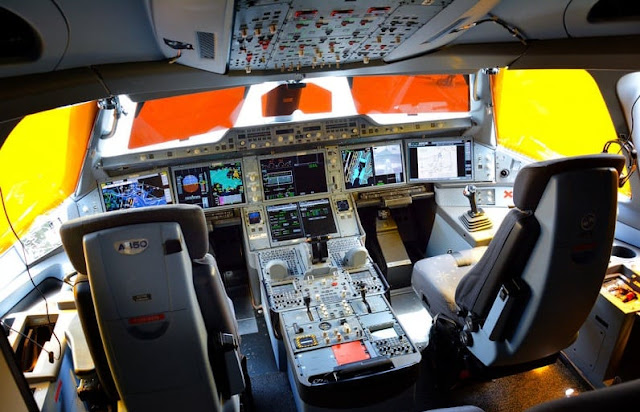Introduction:
Airbus
is a leading aircraft manufacturer based in Toulouse, France. The company
designs, develops, and manufactures commercial and military aircraft, as well
as helicopters and satellites. Airbus has a long history of innovation and
technological advancements, which have helped it to remain at the forefront of
the aviation industry.
One
of the most significant technological advancements in recent years has been the
development of fly-by-wire technology. Airbus was the first aircraft
manufacturer to introduce this technology into commercial aircraft, with the
launch of the A320 in 1988. Fly-by-wire technology replaces traditional
mechanical controls with electronic systems, making aircraft more efficient and
safer to operate.
Development:
Another
important development has been the use of composite materials in aircraft
construction. Composite materials are lightweight, strong, and durable, making
them ideal for use in aircraft. Airbus has been a pioneer in the use of
composite materials, with the A350 XWB being the first commercial aircraft to
have a composite fuselage and wing structure.
Airbus
has also been at the forefront of developments in aerodynamics. The company's
A320neo family of aircraft, which entered service in 2016, features wingtip
devices known as sharklets. These devices improve the aerodynamics of the
aircraft, resulting in a reduction in fuel consumption and emissions.
Advancement:
In
addition to these technological advancements, Airbus has also been a leader in
the development of new aircraft designs. The company's A380, which entered
service in 2007, is the largest commercial aircraft in the world. The A380
features a double-decker design, with a capacity of up to 853 passengers,
making it ideal for long-haul flights.
Airbus
has also been a leader in the development of sustainable aviation technologies.
The company has invested heavily in research and development of alternative
fuels, including biofuels and hydrogen. In 2020, Airbus unveiled three
hydrogen-powered concept aircraft, which are expected to enter service in the
coming years.
Significant Impact:
Overall,
Airbus technology has had a significant impact on the aviation industry,
helping to make air travel safer, more efficient, and more sustainable. With
ongoing investment in research and development, it is likely that Airbus will
continue to be at the forefront of technological advancements in the aviation
industry for years to come.
One
of the most significant technological developments in recent years has been the
use of artificial intelligence (AI) in aircraft. Airbus has been at the
forefront of this development, using AI to improve aircraft safety and
efficiency. For example, the company has developed an AI-powered tool that can
analyze aircraft maintenance data to predict potential issues before they
become critical.
Features in Aircraft:
Apart
from the technologies mentioned above, Airbus has also introduced several other
innovative features in their aircraft. One such feature is the use of digital
fly-by-wire technology, which allows pilots to fly aircraft using computer
commands rather than mechanical controls. This technology is found in the A350
XWB, making it one of the most technologically advanced aircraft in the world.
3D Printing:
Airbus
has also introduced the use of 3D printing in aircraft manufacturing, which
allows for faster and more efficient production of aircraft components. This
technology has been used in the production of several Airbus aircraft,
including the A350 XWB and the A320neo family of aircraft.
Development of Aircraft Connectivity:
Another
area where Airbus has made significant strides is in the development of
aircraft connectivity. Airbus has introduced a range of solutions that allow
passengers to stay connected during flights, including in-flight Wi-Fi and
mobile phone connectivity. The company is also working on developing new
technologies that will allow for seamless connectivity across different modes
of transport.
Development of Electric and Hybrid-electric Aircraft:
Airbus
has also been a pioneer in the development of electric and hybrid-electric
aircraft. In 2020, the company announced its plan to develop the world's first
zero-emission commercial aircraft by 2035. This ambitious project will require
significant investment in research and development, but it has the potential to
transform the aviation industry and help reduce carbon emissions.
Conclusion:
In
conclusion, Airbus technology has played a vital role in shaping the modern
aviation industry. The company's focus on innovation and technological
advancement has helped it to remain at the forefront of the industry, and its
ongoing investment in research and development will continue to drive the
industry forward. With the introduction of new technologies such as AI and
electric propulsion, Airbus is poised to revolutionize the aviation industry
once again, making air travel safer, more efficient, and more sustainable.









0 Comments